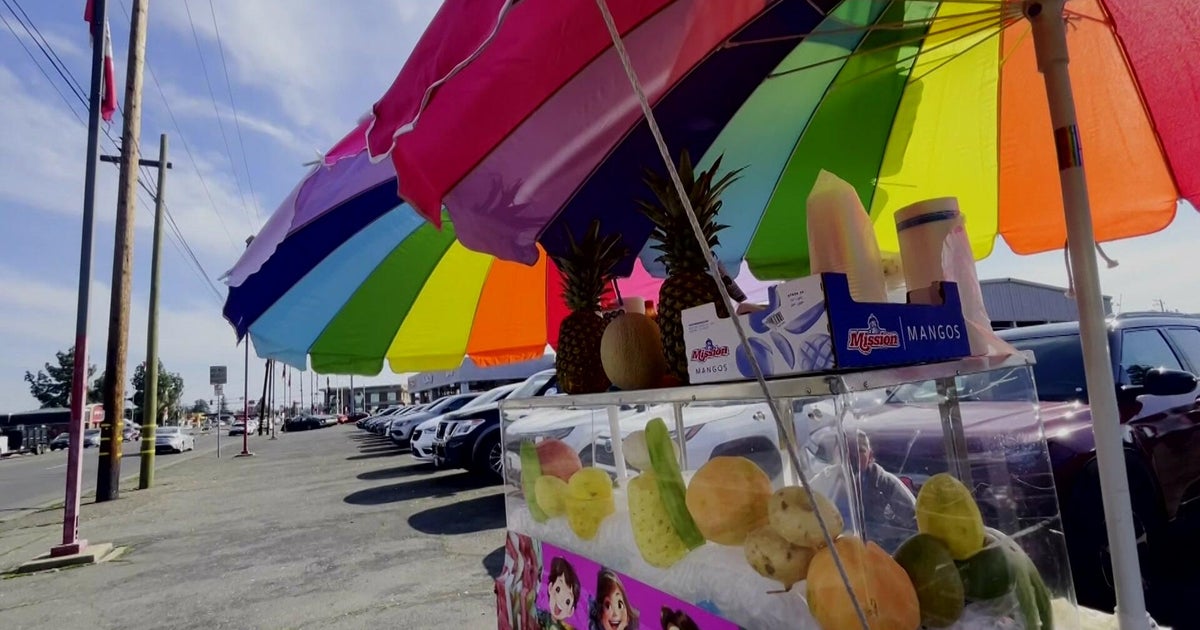Attention Vegetable Haters: It Could Be In Your Genes
By Sandee LaMotte, CNN
(CNN) -- If certain vegetables have always made you gag, you may be more than a picky eater. Instead, you might be what scientists call a "super-taster:" a person with a genetic predisposition to taste food differently.
Unfortunately, being a super-taster doesn't make everything taste better. In fact, it can do the opposite.
Super-tasters are extremely sensitive to bitterness, a common characteristic of many dark green, leafy veggies such as broccoli, cauliflower, cabbage and Brussels sprouts, to name a few.
"The person who has that genetic propensity gets more of the sulfur flavor of, say, Brussels sprouts, especially if they've been overcooked," said University of Connecticut professor Valerie Duffy, an expert in the study of food taste, preference and consumption.
"So that [bitter] vegetable is disliked, and because people generalize, soon all vegetables are disliked," Duffy said. "If you ask people, 'Do you like vegetables?' They don't usually say, 'Oh yeah, I don't like this, but I like these others.' People tend to either like vegetables or not."
In fact, people with the "bitter gene" are 2.6 times more likely to eat fewer vegetables than people who do not have that gene, according to a new study presented Monday at the annual meeting of the American Heart Association.
"We wanted to know if genetics affected the ability of people who need to eat heart-healthy foods from eating them," said study author Jennifer Smith, a registered nurse who is a postdoc in cardiovascular science at the University of Kentucky School of Medicine.
"While we didn't see results in gene type for sodium, sugar or saturated fat, we did see a difference in vegetables," Smith said, adding that people with the gene tasted "a 'ruin-your-day' level of bitterness."
The complex sense
Our sense of taste relies on much more than a gene or two. Receptors on our taste buds are primed to respond to five basic flavors: salty, sweet, sour, bitter and umami, which is a savory flavor created by an amino acid called glutamate (think of mushrooms, soy sauce, broth and aged cheeses).
"But it's also smelling through the mouth and the touch, texture and temperature of the food," Duffy said. "It's very difficult to separate out taste from the rest. So when any of us say the food tastes good, it's a composite sensation that we're reacting to."
Even our saliva can enter the mix, creating unique ways to experience food.
"When we come to the table, we don't perceive the food flavor or the taste of food equally," Duffy said. "Some people live in a pastel food world versus others who might live in a more vibrant, neon food world. It could explain some of the differences in our food preference."
While there are more than 25 different taste receptors in our mouth, one in particular has been highly researched: the TAS2R38, which has two variants called AVI and PAV.
About 50% of us inherent one of each, and while we can taste bitter and sweet, we are not especially sensitive to bitter foods.
Another 25% of us are called "non-tasters" because we received two copies of AVI. Non-tasters aren't at all sensitive to bitterness; in fact food might actually be perceived as a bit sweeter.
The last 25% of us have two copies of PAV, which creates the extreme sensitivity to the bitterness some plants develop to keep animals from eating them.
Developing a less bitter veggie
When it comes to bitterness in the veggie family, the worst offenders tend to be cruciferous vegetables, such as broccoli, kale, bok choy, arugula, watercress, collards and cauliflower.
That's too bad, because they are also full of fiber, low in calories and are nutrient powerhouses. They're packed with vitamins A and C and what's called phytonutrients, which are compounds that may help to lower inflammation.
Rejecting cruciferous or any type of vegetable is a problem for the growing waistline and health of America.
"As we age as a population, vegetables are very important for helping us maintain our weight, providing all those wonderful nutrients to help us maintain our immune system and lower inflammation to prevent cancer, heart disease and more," Duffy said.
Food scientists are trying to develop ways to reduce the bitterness in veggies, in the hopes we can keep another generation of super-tasters from rejecting vegetables.
There's been some success. In fact, the Brussels sprouts we eat today are much sweeter than those our parents or grandparents ate. Dutch growers in the 90s searched their seed archives for older, less bitter varieties, then cross-pollinated them with today's higher yielding varieties.
People who already reject vegetables might try to use various cooking methods that can mask the bitter taste.
"Just because somebody carries the two copies of the bitter gene doesn't mean that they can't enjoy vegetables," Duffy said. "Cooking techniques such as adding a little fat, a little bit of sweetness, strong flavors like garlic or roasting them in the oven, which brings out natural sweetness, can all enhance the overall flavor or taste of the vegetable and block the bitterness."
The-CNN-Wire
™ & © 2019 Cable News Network, Inc., a WarnerMedia Company. All rights reserved.







